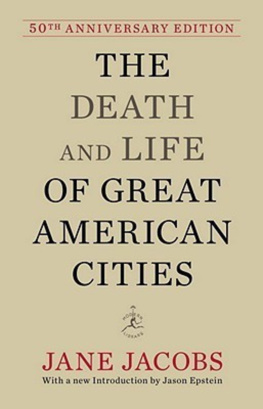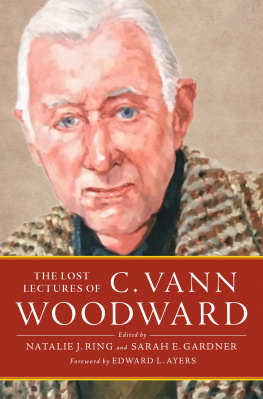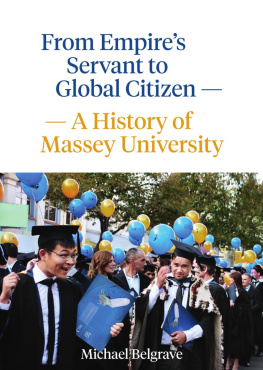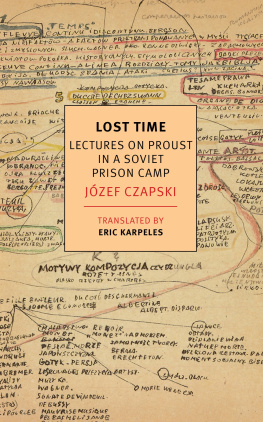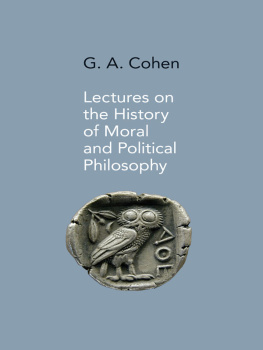Individual lectures copyright 1965 John Kenneth Galbraith, 1966 Paul
Goodman, 1967 Martin Luther King, Jr., 1980 Jane Jacobs, 1984 Eric W. Kierans
Introduction copyright 2007 Bernie Lucht
All rights reserved. No part of this publication may be reproduced or transmitted in any form or by any means, electronic or mechanical, including photocopying, recording, or any information storage and retrieval system, without permission in writing from the publisher.
Published in 2007 by House of Anansi Press Inc.
www.houseofanansi.com
Distributed in Canada by Distributed in the United States by
HarperCollins Canada Ltd. Publishers Group West
1995 Markham Road 1700 Fourth Street
Scarborough, ON, M1B 5M8 Berkeley, CA 94710
Toll free tel. 1-800-387-0117 Toll free tel. 1-800-788-3123
Page 400 constitutes a continuation of this copyright page.
House of Anansi Press is committed to protecting our natural environment. As part of our efforts, this book is printed on paper that contains 100% post-consumer recycled fibres, is acid-free, and is processed chlorine-free.
11 10 09 08 07 1 2 3 4 5
Library and Archives Canada Cataloguing in Publication Data
The lost Massey lectures : recovered classics from five great thinkers /
John Kenneth Galbraith... [et al.].
(CBC Massey lectures series)
A collection of five Massey lectures are reprinted in their entirety.
The authors include: John Kenneth Galbraith, Paul Goodman, Jane Jacobs,
Eric W. Kierans, and Martin Luther King Jr.
Includes bibliographical references.
ISBN 978-0-88784-217-7 (pbk.). ISBN 978-0-88784-864-3 (epub). ISBN 978-1-77089-686-4 (kindle).
1. United States Social conditions 1945. 2. United States
Civilization 20th century. 3. United States Moral conditions.
4. Developing countries Economic conditions. 5. Industrial policy.
6. Corporate state. 7. National state. 8. Social policy. 9. Qubec
(Province) History Autonomy and independence movements.
I. Galbraith, John Kenneth, 19082006. II Series.
JZ1242.L675 2007 909.82'5 C2007-903440-3
Library of Congress Control Number: 2007930189
INTRODUCTION
The Massey Lectures were born in the winter of 1961. They were unveiled in late February by the vice-president and general manager of English networks at the Canadian Broadcasting Corporation (CBC), H. G. Walker. Each year, he said in the press release announcing the series, the CBC will invite a noted scholar to undertake study or original research in his field and present the results in a series of half-hour radio broadcasts. He continued, saying that he hoped the lectures would make significant contributions to public awareness and understanding and... further development of the art of broadcasting.
The lectures were named for the Right Honourable Vincent Massey, who had recently completed a seven-year term as governor general of Canada. Massey is notable as the first Canadian-born person to hold the post, but it was work he did before becoming governor general that inspired the CBC to name the new lecture series after him.
In 1949, Vincent Massey had been appointed by the government of Prime Minister Louis St. Laurent to head a royal commission mandated to carry out a sweeping study of the entire field of letters, the arts and sciences within the jurisdiction of the federal state. Grandly named the Royal Commission on National Development in the Arts, Letters and Sciences, it came to be known more simply as the Massey Commission. Its scope included science, literature, the arts, music, drama, film, and broadcasting. The commission held hearings across the country. It listened to testimony from more than a thousand witnesses and received 462 written submissions. It took two years to do its work and issued its final report in 1951.
The Massey Report was enormously influential. It led to, among other things, the establishment of the National Library of Canada and the Canada Council. But more broadly, the report was instrumental in modernizing the role of the federal government in cultural activity. Naming a prestigious lecture series after Vincent Massey was the CBCs way of giving him special recognition for the work he had done to promote culture and the humanities in Canada.
The first set of Massey Lectures was broadcast in the spring of 1961. It consisted of six half-hour talks by Barbara Ward, a British expert in economics and international affairs. Her lectures were called The Rich Nations and the Poor Nations, and in them she examined the causes of poverty in what were then known as the underdeveloped nations. The lectures were broadcast once a week, on Thursday nights at 8:30. Vincent Massey himself introduced the first broadcast. The CBC later published the lectures as a book, and so began a tradition in public broadcasting and publishing that has continued for forty-six years, a tradition that has evolved and expanded with the times.
Most, but not all, of the Massey Lectures are still in print. The lectures today are the product of a happy collaboration of three partners CBC Radio, House of Anansi Press, and Massey College in the University of Toronto. For most of their history, the Massey Lectures were recorded within the austere confines of a CBC radio studio in Toronto. But since 2002, they have been delivered each fall before large audiences on university campuses in cities across Canada. The recorded public lectures are then broadcast to listeners in Canada on CBC Radio One, and to all of North America on Sirius Satellite radio. They are also streamed worldwide on the Internet and available as podcasts. Simultaneously with the broadcasts, the lectures are published as a trade paperback that garners international attention and usually makes the bestseller lists. The Massey Lectures have established their place as a truly Canadian institution and are an annual highlight of our national intellectual life.
The CBC Radio program Ideas is assigned the task of producing the Massey Lectures. As executive producer of Ideas, I have been directly involved in the selection of Massey Lecturers since 1985, but my connection to the series goes back much earlier, to 1971. In September of that year, I was looking for work, having just returned to Canada from a two-year posting as a Canadian University Service Overseas (CUSO) volunteer in Nigeria. I applied to the CBC, where I had worked before. The program Ideas was looking for a production assistant, and against all odds I got the job.
My first assignment was to edit the raw studio recordings of that years Massey lecturer, James A. Corry, one of Canadas most distinguished political scientists and a former principal of Queens University. His topic was The Power of the Law.
Professor Corry was a naturally slow and thoughtful speaker. As I listened to the tape of him talking, I thought it would have been nice if he had spoken just a little bit faster. I wanted to speed him up and puzzled over whether or not I could. Technically, it could be done, but actually doing it seemed presumptuous. Speed up a distinguished and respected scholar? Who was I, a junior staff member of the CBC, to do that? But I couldnt resist. I set aside any reservations and started in. I set myself up in a tiny, fluorescent-lit editing room, armed with the tools of the trade an ancient, floor-mounted Ampex reel-to-reel editing machine, a notepad, a stopwatch, a yellow grease pencil, a razor blade, and a little roll of special white adhesive tape.
The way to get Corry to speak more quickly was to take out the pauses in his speech. There were pauses everywhere between paragraphs, between sentences, between clauses and phrases, and even between individual words. Cutting them out was laborious work that required making thousands of edits on the audiotape. These days we edit digitally, on computers, but until the late 1990s it was all done by hand. You physically marked the tape with the grease pencil and sliced out the bits you didnt want with the razor blade. Then you stuck the ends back together with the adhesive tape. You had to make sure the edit was undetectable to the ear. It was a good idea to save the bits that were cut out, including breaths and pauses, in case you needed to put them back in.


